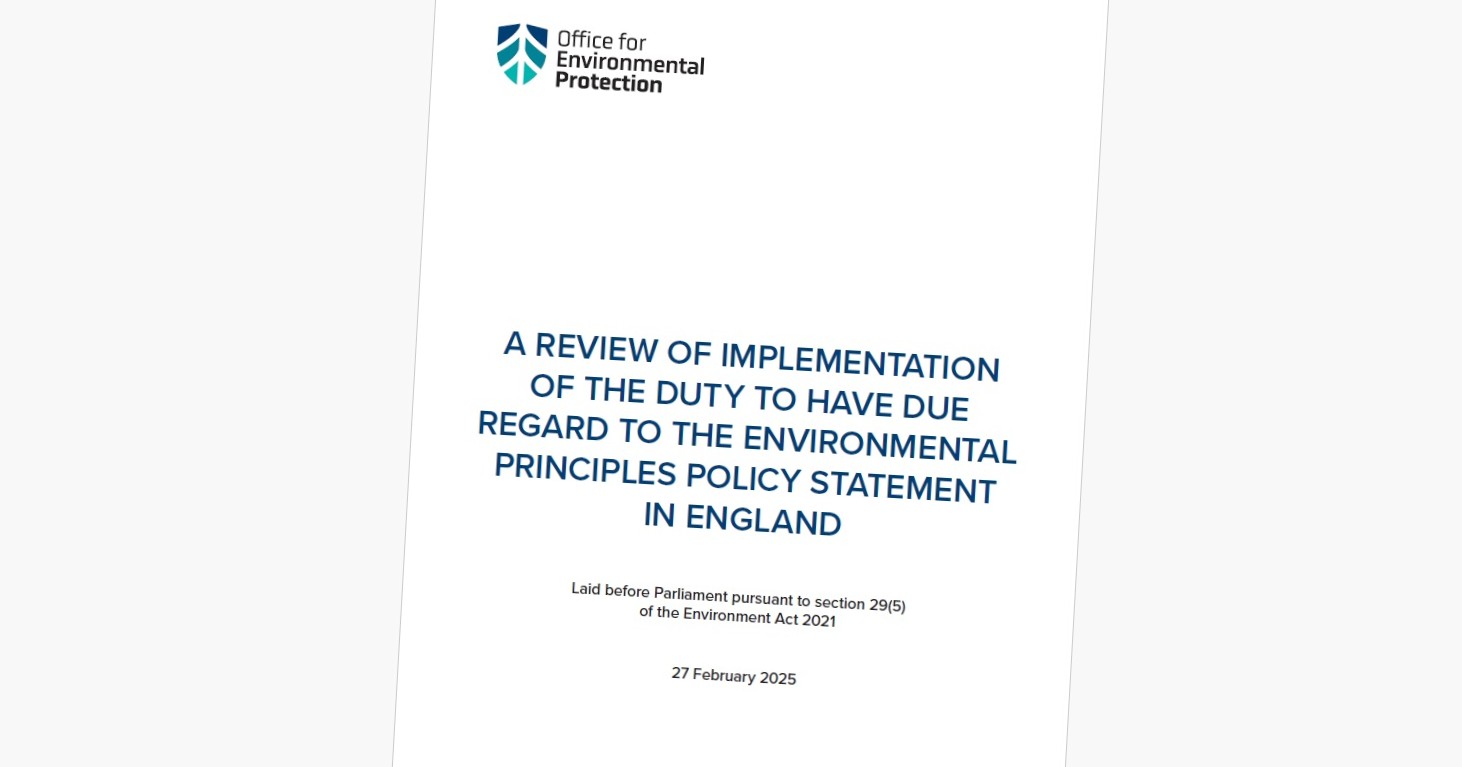There are positive early signs that a key legal obligation, designed to put the environment at the heart of government policy making, is being supported by government, but more still needs to be done, says a report published by the Office for Environmental Protection.
Government ministers and officials have a legal duty to consider the Environmental Principles Policy Statement (EPPS), when making policy. The EPPS is important because it sets out how Ministers (and officials acting on their behalf) should apply five well established environmental principles to support environmental protection and improvement. It means government policymakers are legally obliged to consider the potential positive and negative effects on the environment from the outset, and as they develop policy.
In its latest report, the Office for Environmental Protection (OEP) scrutinises and monitors how the EPPS has been implemented across a number of government departments since it came into effect on 1 November 2023.
The OEP is now urging strong government leadership to strengthen the EPPS and help drive progress towards government’s legally binding environment targets, commitments and goals, such as those in the Environmental Improvement Plan (EIP). Government is currently largely off-track to meet statutory and other targets.
The OEP’s Chair, Dame Glenys Stacey, said:

“Strong leadership is needed from government to strengthen the EPPS to better reflect legally binding targets and government’s strategies and plans to help increase the prospects of meeting them. The EIP is government’s plan and not just the responsibility of one department. It requires cross departmental support and policy coherence, and that is where effective implementation of the EPPS can make so much difference.
“There is so much to be done to protect and improve the environment. In our most recent EIP annual progress report, we found that government is largely off-track to meet its targets. The window of opportunity to turn things around is closing fast. The responsibility is not Defra’s alone: the EPPS is such a valuable tool, stretching beyond Defra to all government departments, and implemented well it can help change this trajectory.”
She added: “We have found positive early signs of the EPPS being supported. More can and must be done, however, to fully embed good practice across the machinery of government.
“It is important at this early stage for government to take a careful look at how things are progressing, before poor practices become too entrenched. We hope our report proves useful in that endeavour to promote best practice across all of government, so that these important principles deliver fully, as intended, for the environment.”
Government has spoken of its ambitions to grow the economy and increase house building. If fully embedded across government the EPPS can be a vehicle to balance growth and green commitments, says the OEP.
Dame Glenys added: “Making policy coherent so that it rises to both environmental challenges and growth needs is not easy, but they don’t have to be in conflict.
“Wherever polices that may have an impact on the environment are being developed – in transport, planning and infrastructure, for example – the environment must by law be considered from the very beginning, and throughout.
“Again, here the EPPS can be a useful tool for government, as it strives to deliver its growth ambitions but must at the same time meet legally binding environmental targets.”
The OEP is also calling for more transparency around government’s implementation of the EPPS.
The OEP Chair said: “Government departments also need to be more transparent about how they are being guided by the EPPS so they can be held publicly accountable, and all can see whether it is being used effectively. Full transparency would enable government to identify any gaps and to act on them.”
Find the full report here.



